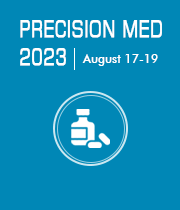Diversity in Precision Medicine
Personalized medicine, often known as precision medicine, is intended to differentiate tailored treatment from trial and error. The modern notion has grown to particularly integrate a patient's "omic profile" in disease prevention, diagnosis, and treatment. Precision medicine has shifted from an academic exercise to a clinical reality for some conditions, with others not far behind. Rapid genomic discoveries made possible by genome-wide association studies (GWAS) combined with decreasing sequencing and genotyping costs have shifted precision medicine from an academic exercise to a clinical reality for some conditions, while others are not far behind. With the advent of electronic health records (EHRs), it is now possible to conduct population-scale research while also successfully delivering individualized medication to individual patients via clinical decision support. The inclusion of historically under-represented groups in sufficient numbers to allow statistically accurate inferences of the influence of relevant risk variables, including genetic contributions to disease risk, is a major problem for precision medicine research. Precision medicine experts have acknowledged the need of increasing diversity and have used a range of methods to do so.
- Diversity in The Biomedical Workforce
- Genomic Discovery
- Genomic Diversity
- Ancestral Diversity
- Environmental Diversity
- Population Diversity
- Genetic and Environmental Interactions

Bernd Blobel
University of Regensburg, Germany
Roy Gary Beran
University of New South Wales, Australia
Matthias Schwab
University of Tubingen, Germany
Thomas Webster
Interstellar Therapeutics, United States
Boris Tankhilevich
Magtera, Inc., United States
Isabella Friis Jorgensen
University of Copenhagen, Denmark


Title : The use of anti seizure medication therapeutic blood level determination to personalise the treatment of epileptic seizures especially in patients attending the accident and emergency department
Roy Gary Beran, University of New South Wales, Australia
Title : Personalized and precision medicine (PPM) can be established as a unique healthcare model through biodesign-driven and inspired biotech, translational applications. This approach aims to ensure human healthcare, wellness, and biosafety.
Sergey Suchkov, Institute for Biotech & Global Health of RosBioTech and A.I. Evdokimov MGMSU, Russian Federation
Title : Monitoring folds localization in ultra-thin transition metal dichalcogenides using optical harmonic generation
Ahmed Raza Khan, Australian National University, Australia
Title : A systematic review of regulatory approaches for Direct- To- Consumers (DTC) genetic testing
Kavitha Palaniappan, Duke-NUS Medical School, Singapore
Title : Regulatory framework of in vitro diagnostic and artificial intelligence for precision medicine
Pei Ting Sarah Chou, Regulatory Affairs Professionals Society, Taiwan
Title : Unraveling cancer stem cell signatures in circulating tumor cells of metastatic colorectal cancer: Investigating ALDH1A1 and the repurposing potential of disulfiram via scRNA-seq
Nurul Syakima Ab Mutalib, Universiti Kebangsaan Malaysia, Malaysia